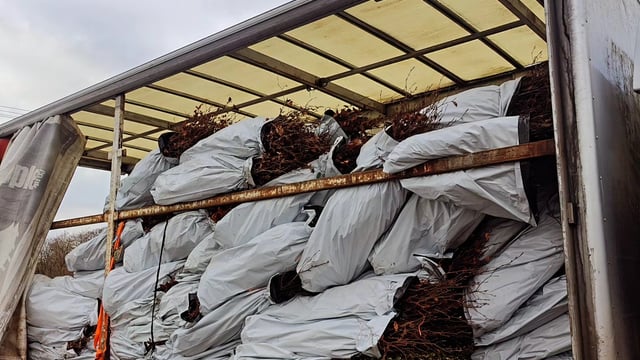New research targeting provision of care in farm households
New research is being conducted to assess the number of people aged 60 and over from farm households who receive some form of care.
The research is being undertaken by University College Dublin (UCD) PhD student and Teagasc Walsh Scholar, Amy Duley and will consist of a short survey to measure the incidence of both formal and informal care services in the west Cork area.
Assistance can be provided from both an informal carer such as a family member, friend or neighbour, and/or a formal care provider such as a public health nurse, home help, Meals on Wheels and day centre services.
The examples of care being surveyed include: bathing; dressing; getting out of bed; walking; using the toilet; preparing meals; light and heavy housework; managing money; using the telephone; and eating.
"Participants just have to be receiving help with one of those daily tasks to be deemed eligible to survey as we're trying to get the full spectrum of care covered in the community," Duley said.
"Essentially the study is just trying to get a baseline of what's happening in the farming scene at the moment because there isn't really any research on long-term care in farm households currently."
Follow up interviews will also be arranged for interested parties that will focus specifically on informal care by family members to better understand the challenges faced by those providing the care and the reasons behind why formal care services are not being availed of in lieu.
"There's potentially a lot of reasons for this, one of them being geographic access - they may not have services available to them in their area or they may be reluctant to have a service provider enter their home," Duley explained.
The study will be used to assess the extent to which the long term health needs in the aging farming community are being addressed and to identify corresponding policy areas in need of improvement going forward.
Speaking about why west Cork was chosen for the research, Duley explained: "We had to narrow it down to one region to make it feasible for me to finish during my PhD.
"The other reason is that west Cork has a very good mix of different farm systems and we're looking at whether the farm system has any impact on whether or not someone uses care services.
"West Cork also has a lot of beef farmers and there's a particular issue of delayed succession and delayed marriage in the beef industry.
"What you have in some situations is a successor taking over the farm who's also having to look after an older person in the household as well, which can have a huge impact on the farm itself because they're [farmers] spending all this time being pulled in a hundred different directions," Duley added.
The study is also interested in the financial impacts of home care, with reference to the fair deal scheme in particular, which Duley has cited as a determining factor in the decisions made around care in farm households.
"A lot of farmers are not interested in engaging with the Fair Deal Scheme for a number of reasons and those who actually need nursing home care would often rather pay out of pocket than apply to the fair deal," Duley said.
The Fair Deal, also know as the Nursing Home Supports Scheme, was introduced in 2009 to offer financial supports for people in long-term nursing home care and to protect family farms and businesses.
Under the terms of the scheme, a resident pays part of their nursing home fees while the Health Service Executive (HSE) pays the balance.
The capital value of an individual’s principal private residence is only included in the financial assessment for the scheme for the first three years of their time in care.
The survey about care in farm households can be completed either by the older person themselves or by a family member or friend providing assistance (must be 18+) and can be found by clicking here.





